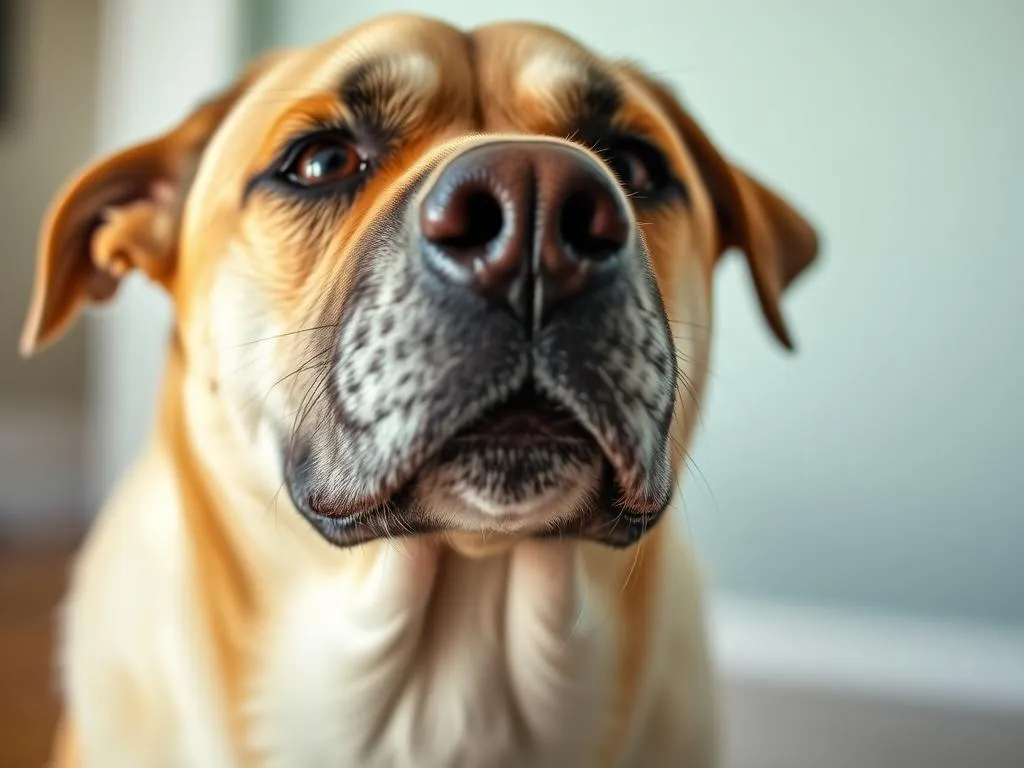
Dogs are known for their loyal companionship, playful spirits, and, let’s face it, their sometimes less-than-pleasant odors. If you’ve ever found yourself asking, “why does my dog smell so bad?”, you’re not alone. Unpleasant smells can be a common concern among dog owners, often leaving them puzzled and seeking answers. Understanding the reasons behind these odors is crucial for maintaining your dog’s health and well-being.
Understanding Dog Odors
Natural Dog Smells
Every dog has a unique scent that’s influenced by various factors, including breed, diet, and environment. For example, some breeds naturally have a stronger odor due to their coat type or skin oils. Additionally, a dog’s diet can significantly affect its smell; high-quality, balanced diets tend to produce less odor than those filled with fillers and artificial ingredients. Environmental factors like humidity and dirt can also contribute to your dog’s natural scent.
When Is a Smell Considered Bad?
Distinguishing between normal and concerning odors is essential. Normal dog smells might be earthy or musky, while bad odors are often more pungent and unpleasant. Common characteristics of bad smells include:
- A strong, rotten, or fishy odor
- Persistent odor despite regular grooming
- Odors that seem to emanate from a specific body part, such as ears or mouth
If your dog has developed an unexpected and strong odor, it may indicate an underlying health issue that needs attention.
Common Causes of Bad Dog Smells
Skin Conditions
Skin infections are a frequent culprit behind foul dog odors. Bacterial and fungal infections can occur due to various reasons, including allergies, irritations, or poor grooming habits. Allergies, in particular, can lead to excessive scratching and licking, which may cause skin infections. Symptoms to watch for include:
- Red or inflamed skin
- Hot spots or sores
- Excessive scratching or licking
Oral Health Issues
Oral hygiene is just as important for dogs as it is for humans. Bad breath, medically known as halitosis, is often a sign of dental problems, such as tartar buildup or gum disease. Signs of dental issues include:
- Foul odor coming from the mouth
- Swollen or bleeding gums
- Difficulty eating or chewing
Ignoring dental hygiene can lead to serious health issues, so regular dental care is paramount.
Ear Infections
A dog’s ear structure makes them prone to infections, especially in breeds with floppy ears. Symptoms of ear infections can include:
- A foul smell coming from the ear
- Discharge or wax buildup
- Excessive scratching or head shaking
Ear infections can be triggered by moisture, allergens, or foreign bodies lodged in the ear canal.
Anal Gland Problems
Anal glands are small sacs located near a dog’s anus that secrete a foul-smelling fluid. If these glands become impacted or infected, they can produce a very strong odor. Signs of anal gland issues include:
- A strong, fishy smell
- Scooting (dragging the rear end on the ground)
- Excessive licking of the anal area
If you suspect anal gland issues, it’s important to consult a veterinarian for advice.
Diet and Digestive Issues
Diet plays a significant role in a dog’s overall health and odor. Poor-quality dog food can lead to digestive problems, resulting in bad smells. Conditions like gas, diarrhea, or an upset stomach can contribute to unpleasant odors. A balanced diet filled with high-quality ingredients can help minimize these issues.
Environmental Factors
The environment in which your dog lives can also impact its smell. Factors like moisture, dirt, and allergens can contribute to odors. For instance, dogs that frequently play outside or swim may carry smells from their surroundings. Additionally, seasonal changes can also affect the types of allergens present in the environment, leading to skin and odor issues.
Identifying the Source of the Smell
Observational Techniques
When trying to determine why does my dog smell so bad, observational techniques can be invaluable. Here are some tips for assessing your dog’s smell:
- Fur: Check for dirt, oily patches, or tangles in the fur that may trap odors.
- Mouth: Inspect your dog’s teeth and gums for signs of dental issues.
- Ears: Look inside the ears for redness, discharge, or excessive wax buildup.
- Rear: Check for any signs of anal gland issues or irritation.
When to Consult a Veterinarian
If you notice persistent odors or any of the following signs, it’s time to consult a veterinarian:
- Sudden changes in odor that are strong or unpleasant
- Signs of discomfort or distress in your dog
- Visible discharge or inflammation in any area
Timely veterinary intervention can prevent minor issues from escalating into serious health problems.
Prevention and Maintenance
Regular Grooming
One of the best ways to keep your dog smelling fresh is through regular grooming. Bathing and brushing help remove dirt and loose fur that can trap odors. Consider the following grooming tips:
- Bathing: Bathe your dog every 4-6 weeks, or more frequently if they get dirty.
- Brushing: Brush your dog’s coat at least once a week to keep it clean and free of tangles.
Choose pet-friendly grooming products to avoid irritation.
Dental Care
Regular dental check-ups are vital for maintaining oral health. Here are some at-home dental hygiene tips:
- Toothbrushes: Use dog-specific toothbrushes and toothpaste.
- Dental Treats: Provide dental chews or treats designed to reduce tartar buildup.
Establishing a dental care routine can significantly improve your dog’s breath and overall health.
Ear Care
Cleaning your dog’s ears is essential, especially for breeds prone to infections. Here are some tips for safe ear cleaning:
- Use a vet-recommended ear cleaner.
- Avoid using cotton swabs, which can push debris further into the ear canal.
- Clean your dog’s ears regularly, especially after swimming or bathing.
Healthy Diet Choices
A balanced diet is key to minimizing odors. Consider the following when choosing your dog’s food:
- Look for high-quality ingredients and avoid fillers.
- Consult with your veterinarian for dietary recommendations tailored to your dog’s needs.
Regular Veterinary Check-Ups
Routine veterinary visits are crucial for your dog’s overall health. During these visits, your vet will perform a comprehensive examination, checking for any underlying health issues that could contribute to odors. Expect your vet to ask about your dog’s diet, grooming routine, and any recent changes in behavior or smell.
Home Remedies for Dog Odors
DIY Bath Solutions
If you’re looking for natural ways to neutralize odors, consider homemade dog shampoo recipes. Here are a couple of simple options:
- Oatmeal Shampoo: Mix 1 cup of ground oatmeal with 1 cup of water and a few drops of dog-safe essential oil.
- Baking Soda Rinse: Dissolve 1 cup of baking soda in warm water and use it as a rinse after bathing.
These natural ingredients can help combat odors without harsh chemicals.
Odor Neutralizers
Using safe sprays and powders can help keep your home smelling fresh. Look for pet-safe products designed to neutralize odors rather than simply masking them. Always check labels to ensure the products are safe for pets.
Lifestyle Changes
Adjusting some lifestyle habits can also help reduce odors. Consider the following:
- Wash your dog’s bedding regularly.
- Maintain a clean living environment, free from dirt and allergens.
- Create a designated area for your dog to minimize mess in your home.
Conclusion
Understanding why does my dog smell so bad involves recognizing the normal scents that dogs emit and identifying when those scents become concerning. Regular grooming, dental care, and a balanced diet play critical roles in keeping your dog healthy and odor-free.
If your dog develops an unusual odor, don’t hesitate to consult your veterinarian. Proactive health care is key to ensuring your furry friend maintains a pleasant scent and overall well-being. Remember, a healthy dog is a happy dog!









